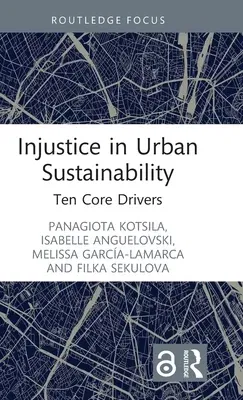This book uses a unique typology of ten core drivers of injustice to
explore and question common assumptions around what urban sustainability
means, how it can be implemented, and how it is manifested in or driven
by urban interventions that hinge on claims of sustainability.
Aligned with critical environmental justice studies, the book highlights
the contradictions of urban sustainability in relation to justice. It
argues that urban neighbourhoods cannot be greener, more sustainable and
liveable unless their communities are strengthened by the protection of
the right to housing, public space, infrastructure and healthy
amenities. Linked to the individual drivers, ten short empirical case
studies from across Europe and North America provide a systematic
analysis of research, policy and practice conducted under urban
sustainability agendas in cities such as Barcelona, Glasgow, Athens,
Boston and Montréal, and show how social and environmental justice is,
or is not, being taken into account. By doing so, the book uncovers the
risks of continuing urban sustainability agendas while ignoring, and
therefore perpetuating, systemic drivers of inequity and injustice
operating within and outside of the city.
Accessibly written for students in urban studies, critical geography and
planning, this is a useful and analytical synthesis of issues relating
to urban sustainability, environmental and social justice.
The Open Access version of this book, available at http:
//www.taylorfrancis.com/books/e/9781003221425, has been made available
under a Creative Commons Attribution-Non Commercial-No Derivatives 4.0
license. Funded by Universitat Autònoma de Barcelona

